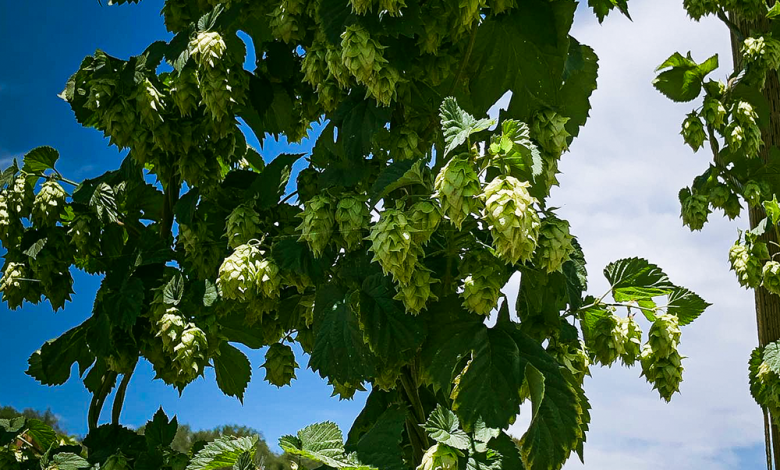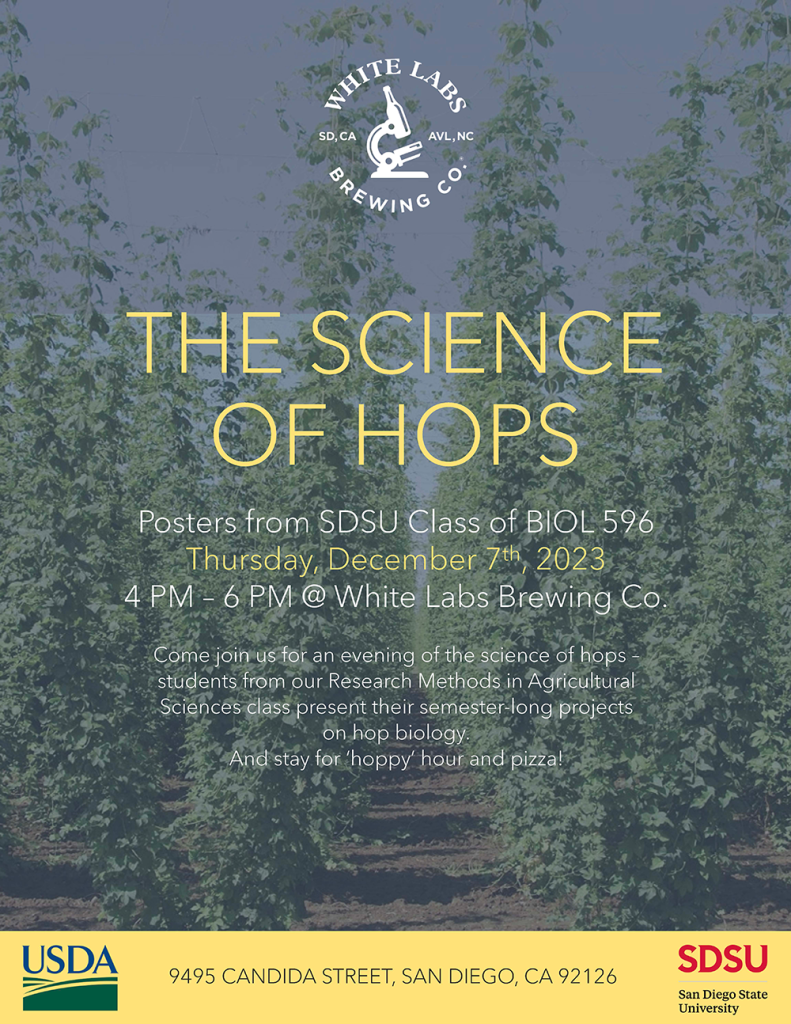
By Pat Walls
People in the San Diego region have been brewing beer and growing hops for over 150 years. With more than 150 local breweries producing over 770,000 barrels of beer each year and creating an annual economic impact of over $330 million, it is easy for regional residents to drink locally made beer. But how many of the ingredients used to produce local beer are grown locally?
In 2022, the direct economic impact of San Diego County’s agricultural products was over $1.7 million, yet virtually none of those goods factored into what ended up in local beer-drinkers’ glasses.
In light of that, the San Diego Estate Beer Project, a collaborative initiative undertaken by members of the San Diego Brewers Guild and Slow Food Urban San Diego, is working toward connecting local farmers and local brewers to increase local supply chains, diversify agricultural products that are grown, address climate change and, hopefully, create truly unique San Diego beers lent aroma, flavor and character from locally grown ingredients.
Hops will be key to achieving the aforementioned goal, but local hop production has been on the decline for some time and the once promising San Diego Hop Growers Association is hanging on by the thinnest of bines. Despite that, there is hope for locally grown hops.
San Diego State University Associate Professor Dr. Arun Sethuraman and California State University San Marcos Professor Dr. George Vourlitis were recently awarded a US Department of Agriculture grant to train students in studying hop genetics and soil ecology in San Diego County. Over the fall, the duo conducted the first phase of a two-semester class held at both universities.
The course’s first cohort ran semester-long experiments in a controlled greenhouse setting where they grew ten varieties of hops (Brewer’s Gold, Columbus, Comet, Fuggle, Hallertauer, Neomexicanus, Saaz, Sorachi Ace, Southern Cross, Zeus). Twelve undergraduate and graduate students from a variety of disciplines are currently evaluating soil microbial diversity, soil fungal diversity (both beneficial mycorrhizal and pathogenic), growth rates and viral afflictions, along with other interesting analyses. They are also investigating hop identification and population structure using genetic fingerprinting in order to identify the genetic differences between hop varieties and why the same varietals exhibit different aromas and flavors when grown in different regions (i.e., unlocking the terroir of hops).
The students also ventured to Hopportunity Farm in Julian where they collected soil samples and compared them to the controlled environment, and visited the Miramar headquarters of prominent yeast supplier White Labs to learn about hop-utilization in brewing settings, hop creep, biotransformation and the crossover skills between science labs and brewing production facilities.
The students and faculty of the initial cohort will return to White Labs to present their analytical findings as part of an event titled The Science of Hops: Posters from SDSU Fall 2023 Class of BIOL 596 Research Methods in Agricultural Sciences. The event is free and open to the public, and will take place on Thursday, December 7 from 4 to 6 p.m. Following the event, the posters will be collected and preserved in CSUSM’s Brewchive.

As a direct outcome of this course, Evolutionary Biology PhD student Alexandra Adame was recently awarded a prestigious California State University Agricultural Research Institution ARI-NEXTGEN fellowship to conduct a longitudinal study of hop varieties in drought conditions in both a controlled setting and an outdoor setting within the San Diego region. Adame will work with other students and faculty to use the same molecular, ecological and bioinformatics techniques to discover what hop varietals grow best in our region with the increasingly changing climate.
Sethuraman and Vourlitis are applying for additional grants to continue expanding this important research to increase hop production in San Diego and beyond. Hopefully we will soon be able to enjoy more locally made beer with unique locally grown products in the near future.
White Labs is located at 9495 Candida Street in Miramar
Pat Walls is a published culinary historian, Certified Cicerone, Certified BJCP Judge, NAGBW judge and competition organizer. During the day he works in the College of Graduate Studies at San Diego State University. He writes at muralbrewing.com.

